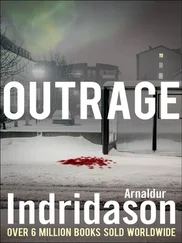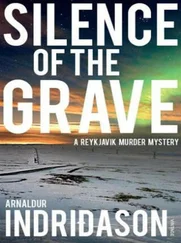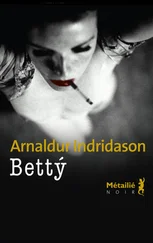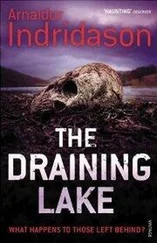Arnaldur Indridason - Black Skies
Здесь есть возможность читать онлайн «Arnaldur Indridason - Black Skies» весь текст электронной книги совершенно бесплатно (целиком полную версию без сокращений). В некоторых случаях можно слушать аудио, скачать через торрент в формате fb2 и присутствует краткое содержание. Год выпуска: 2012, ISBN: 2012, Издательство: Random House UK, Жанр: Полицейский детектив, на английском языке. Описание произведения, (предисловие) а так же отзывы посетителей доступны на портале библиотеки ЛибКат.
- Название:Black Skies
- Автор:
- Издательство:Random House UK
- Жанр:
- Год:2012
- ISBN:9781446485026
- Рейтинг книги:5 / 5. Голосов: 1
-
Избранное:Добавить в избранное
- Отзывы:
-
Ваша оценка:
- 100
- 1
- 2
- 3
- 4
- 5
Black Skies: краткое содержание, описание и аннотация
Предлагаем к чтению аннотацию, описание, краткое содержание или предисловие (зависит от того, что написал сам автор книги «Black Skies»). Если вы не нашли необходимую информацию о книге — напишите в комментариях, мы постараемся отыскать её.
Black Skies — читать онлайн бесплатно полную книгу (весь текст) целиком
Ниже представлен текст книги, разбитый по страницам. Система сохранения места последней прочитанной страницы, позволяет с удобством читать онлайн бесплатно книгу «Black Skies», без необходимости каждый раз заново искать на чём Вы остановились. Поставьте закладку, и сможете в любой момент перейти на страницу, на которой закончили чтение.
Интервал:
Закладка:
‘No,’ Bergthóra agreed, ‘let’s not talk about it. I didn’t mean to either. Let’s drop it.’
‘I’m surprised to hear you say that about Mum,’ Sigurdur Óli said after a pause. ‘Though I know what she can be like. I seem to remember warning you about her when we first got together.’
‘Yes, you told me not to let her get to me.’
‘And I hope you didn’t.’
There was a long silence. The wine was from Tuscany, smooth and mellow on the palate; the music over their heads was Italian too, and the food they were waiting for. Only the silence between them was Icelandic.
‘I don’t want to adopt,’ Sigurdur Óli said.
‘I know,’ Bergthóra answered. ‘You’ll find another woman and have your own babies with her.’
‘No,’ Sigurdur Óli said, ‘I don’t think I’d make a good father.’
When he got home he turned on the television and started watching the baseball but the Red Sox put in an atrocious performance which did nothing to cheer him up after his dinner with Bergthóra. Then his phone started ringing on the kitchen table where he had left it. Sigurdur Óli did not recognise the number and was about to turn it off when curiosity got the better of him.
‘Yes?’ he answered with unnecessary brusqueness. It was a tactic he had developed long ago for dealing with unknown callers. After all, it might be a charity. His name was marked with a red cross in the telephone directory, indicating that he was not to receive any cold calls, but there was always the odd one that slipped through the net and the caller was immediately made to regret it.
‘Sigurdur?’ said a female voice.
‘Who’s that?’
‘Is this Sigurdur Óli?’
‘Yes.’
‘It’s Eva.’
‘Eva?’
‘Eva Lind. Erlendur’s daughter.’
‘Oh. Hi.’
There was no warmth in his voice. Sigurdur Óli was well aware of who she was; he and Erlendur had been colleagues for years, and he had encountered her professionally too. Eva Lind had led an unruly life that had brought her into contact with the police on more than one occasion. Indeed, her life as an addict had caused her father untold grief.
‘Have you heard from him at all?’ Eva Lind asked.
‘Your father? No, nothing. All I know is that he took some leave and was intending to head to the East Fjords for a few days.’
‘Oh. Didn’t he take his phone with him? He’s only got the one mobile number, hasn’t he?’
‘Yes, I think so.’
‘He hasn’t got any other phone? Because he’s not picking up.’
‘Not as far as I know.’
‘If he gets in touch, could you tell him I was asking after him?’
‘Sure, but …’
‘What?’
‘I’m not expecting to hear from him,’ Sigurdur Óli said, ‘so …’
‘No, me neither,’ Eva Lind said. ‘We …’
‘Yes?’
‘We went for a drive the other day; he wanted to look at some lakes around Reykjavík. He was …’
‘What?’
‘He seemed so down.’
‘Isn’t he always? I wouldn’t worry about it. I’ve never known your dad to be anything but down.’
‘I know.’
Neither of them spoke.
‘Will you say hi from me?’ Eva Lind asked.
‘Sure.’
‘Bye then.’
Sigurdur Óli said goodbye and put down the phone. Then he turned off the television and went to bed.
11
It took him some time to find the old projector, tucked away in a low cubbyhole in the kitchen broom cupboard.
He had been sure the old man would not have destroyed it; a machine like that would never end up on the tip if that bastard had anything to do with it. Amazingly, after all these years the old lead-grey device still worked, but then the bastard was probably still using it. He felt its familiar weight as he lifted it out of its hiding place and set it up on the table in the sitting room, his eye falling on the manufacturer’s logo: Bell amp; Howell. He remembered how puzzled he had been as a boy by this name, until a friend explained it as almost certainly the names of two men, one called Bell, the other Howell, who had manufactured the machine together, most likely in America. The projector itself was concealed in a deep compartment under the lid. He pulled the lid off, swung out the reel arms, plugged in the old electric cable and flicked the switch. The wall opposite lit up.
The projector was one of the few possessions the bastard had brought with him when he moved in with his mother, Sigurveig. He had been unaware of the new man in her life since he was in the countryside at the time. Then one day word had come that his mother wanted him back. She had moved into a council block in one of the newer suburbs, and claimed that she had quit the booze and met a new man. Next he received a phone call from the woman whom he never addressed as Mother, only Sigurveig, because after two years apart she was like a stranger to him. It was the first and only time she rang him at the farm and the conversation was brief: she wanted her youngest child to come and live with her. He replied that he was happy on the farm. ‘I know, dear,’ he heard her say down the phone, ‘but now you’re coming home to me. It’s been approved. It’s all sorted.’
Some days later he said goodbye to the farmer’s wife and the couple’s two daughters, and the farmer himself drove him down to the main road and waited with him until the bus arrived. It was the height of summer and he felt he was betraying the farmer because the hay harvest was under way and they needed his help. The couple had often praised him for his diligence and helpfulness. One day, they said, he would turn out all right, more than all right. In the distance they saw the bus approaching and eventually it drew up beside them in a cloud of dust.
‘All the best, and maybe you’ll drop by and see us when you get the chance,’ the farmer said, making as if to shake his hand, then giving him a hug. He slipped a thousand-krona note into his hand. The bus set off with a jerk and the farmer disappeared as the dust rose again. He had never in his life owned any money before and on the journey to Reykjavík he kept taking the note out of his pocket and examining it in wonder, then folding it up and putting it back in his pocket, only to fish it out a minute or two later to study it again.
Sigurveig was supposed to be meeting him at the bus station but when he arrived she was nowhere to be seen. It was a cold evening and he stood for a long time beside his suitcase, waiting for her. Eventually he sat down on the case. He did not know how to get home, or what district the block of flats was in or even the name of the street, and he grew increasingly anxious as the evening wore on. There was no one he could turn to for help. He had been away for a long time; the farmer had told him ages ago that his father had gone to live abroad and he knew nothing about his two siblings, who were considerably older. There was nobody else.
He sat on his case, casting his mind back to his home or rather to the place that he had called home for the last two years. They would have finished in the cowshed by now and the girls would be mucking around. Then they would shoo the dogs out of the kitchen and dinner would be served up: boiled trout from the lake with melted butter, perhaps — his favourite.
‘I assume you’re the brat I’m supposed to be meeting.’
He looked up. A man he had never seen before was looming over him.
‘You’re little Andy, aren’t you?’ the man said.
No one had called him Andy since he had left town.
‘My name’s Andrés,’ he replied.
The man looked him up and down.
‘Then it must be you. Your mum says hello — or at least I think that’s what she said. She hasn’t been on particularly good form lately.’
Читать дальшеИнтервал:
Закладка:
Похожие книги на «Black Skies»
Представляем Вашему вниманию похожие книги на «Black Skies» списком для выбора. Мы отобрали схожую по названию и смыслу литературу в надежде предоставить читателям больше вариантов отыскать новые, интересные, ещё непрочитанные произведения.
Обсуждение, отзывы о книге «Black Skies» и просто собственные мнения читателей. Оставьте ваши комментарии, напишите, что Вы думаете о произведении, его смысле или главных героях. Укажите что конкретно понравилось, а что нет, и почему Вы так считаете.












